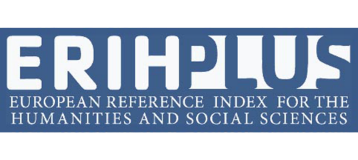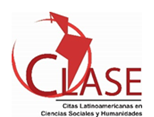Considerations and reflections on multilateralism and subsidies under the GATT / WTO
Keywords:
Multilateralism, subsidies, GATT/WTO, Agreement on Subsidies and Countervailing Measures (SCM), Agreement on AgricultureAbstract
This article’s main objective is to investigate the proposals from several theorists of international relations to describe the emergence and evolution of multilateralism from the seventeenth and eighteenth centuries; on this tour it is verified the conceptual components that characterize and constitute the contemporary multilateralism and the General Agreement on Tariffs and Trade (GATT) whose mission, until the constitution in the 90’s of the World Trade Organization (WTO), has been promoting a healthy international trade. We conclude from this study that multilateralism is not indifferent to the events and political, economic and social facts from their context, which have resulted in various economic and financial crises currently. So the “new multilateralism”, to deal with the circumstances result of the financial and economic crisis that crack and afflict the international structure, must be made of flexible structures able to adequately articulate the points of interconnection between the institutions from the public and the private sector, promoting a solution to the problem with a sense of participatory responsibility to monitor the conditions of world political economy of global trade within a new capitalist order.
Downloads
References
Bull, H. (2005). La sociedad anárquica. Un estudio sobre el orden en la política mundial. Madrid: Catarata.
Caporaso, J. A. (1992). International Relations Theory and Multilateralism: The Search for Foundations. International Organization, 46, (3), pp. 599-632. Recuperado septiembre 1 de 2008 enhttp://www.jstor.org/stable/2706990.
Cárdenas, R. M. (2010). Portafolio. La modernización del multilateralismo. Recuperado octubre 4 de 2013. En http://search.proquest.com/docview/334548900?accountid=34622
Doporto M. I. & Galperín, C. (2006). Las Negociaciones Agrícolas en la OMC, la reforma de la PAC y el margen de maniobra de la UE. Revista del CEI Comercio Exterior e Integración, (7), pp. 47-72. Recuperado septiembre 5 de 2008 en http://www.cei.gov.ar/revista/05/parte3.pdf
Ford, J. (2002). A Social Theory of Trade Regime Change: GATT to WTO. International Studies Review, 4, (3), pp. 115-138. Recuperado septiembre 1 de 2008 enhttp://www.jstor.org/stable/3186466.
Haas, E. B. & Schmitter, P. C. (1964). Economics and Differential Patterns of Political Integration: Projections about Unity in Latin America. International Organization. Vol. 18, (4), pp. 705-737. Recuperado septiembre 1 de 2008. En http://www.jstor.org/stable/2705528
Hardt, M. & Negri, A. (2005). Imperio. Barcelona: Paidós Ibérica.
Hoekman, B. (1989). Determining the Need for Issue Linkages in Multilateral Trade Negotiations. International Organization, 4, (04), pp. 693-714. Recuperado septiembre 1 de 2008. En http://www.jstor.org/stable/2706804
Keohane, R. O. (1986). Reciprocity in International Relations. International Organization, 40, (01), pp. 1-27. Recuperado septiembre 1 de 2008. En http://www.jstor.org/stable/2706740
Krugman, P. & Obstfeld, M. (2006). Economía Internacional Teoría y Política. (5a ed.). Madrid: Pearson Educación.
Luengo, G. E. (2000). El concepto de subvención en la OMC: comparación con el sistema euro-peo de ayudas a raíz del caso de las empresas de venta en el extranjero. Revista Electrónica de Estudios Internacionales, 2000, pp. 1-54. Recuperado septiembre 5 de 2008. En http://www.reei.org/reei1/Luengo.reei.PDF
Massot M. A. (2000). Política Agrícola Común frente a la Ronda del Milenio. Defensa de la multifuncionalidad agraria. Boletín Económico del CEI Comercio Exterior e Integración (2651). Recuperado septiembre 5 de 2008 En http://www.cei.gov.ar/revista/01/parte3.pdf
Miller, R. (2002). Economía hoy. Bogotá: Pearson Education
Mochón, F. (2000). Economía, teoría y política. (4ª ed.).Madrid: McGraw-Hill.
Moreau-Defarges, P. (2004). Le multilatéralisme et la fin de l’histoire. Politique étrangère, 3, pp. 575-585. Recuperado octubre 4 de 2013. En http://www.ifri.org/?page=detailcontribution&id=4251&id_provenance=97
Nash, J. F., Jr. (2013). Encyclopædia Britannica. Ultimate Reference Suite. Chicago: Encyclopædia Britannica.
OMC. (1994). Acuerdo sobre la Agricultura. Recuperado noviembre 10 de 2008 en http://www.wto.org
OMC. (2006). Informe sobre el Comercio Mundial. Recuperado septiembre 1 de 2008 en http://www.wto.org
Ruggie, J. G. (1992). Multilateralism: the Anatomy of an Institution. International Organization, 46, (3), pp. 561-598. Recuperado septiembre 1 de 2008 En http://www.jstor.org/stable/270698
Sistema de Cuentas Nacionales. (1993). Naciones Unidas, capítulo VII, D. 3: párrafo 7.72. Recuperado septiembre 5 de 1008 En http://unstats.un.org/unsd/sna1993/tocLev8.asp?L1=7&L2=4
Zoellick, R. (2008). Opinión-el nuevo multilateralismo estará respaldado por la cooperación. Noticias Financieras. Recuperado el 4 de octubre de 2013. En http://search.proquest.com/docview/466887517?accountid=34622
Downloads
Published
Issue
Section
License

This work is licensed under a Licencia Creative Commons Atribución-NoComercial-














.png)
